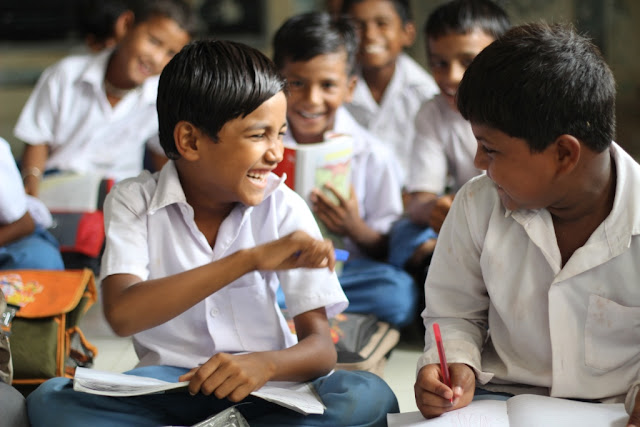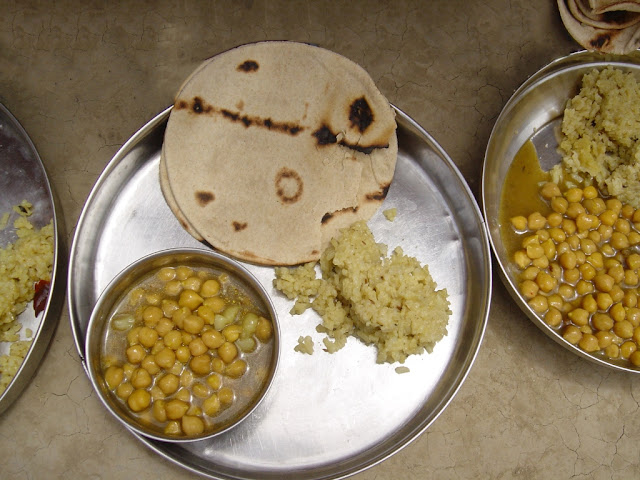The purpose of human life is to serve, and to show compassion and the will to help others.
- Albert Schweitzer
Our life on earth is counted by the virtuous deeds we do for others. We may not be able to help everyone but we can do something to help someone. There are many ways to support those who are in need like donating to charity, lending a helping hand to non-profit organisations or sponsoring a child etc.
We know that in government schools most of the children tend to be drop-outs when hunger remains a constraint. The performance of a student in class is directly dependant on the nutrition he/she is getting. Most of the children come with empty stomachs and doesn’t have the energy to concentrate in class. They lose interest in studies and end as drop outs. The non-profit organisations like Akshaya Patra serves mid-day meals to children in government schools with continuous support from the Central Government and the State Governments operating on a Public-Private-Partnership model. Education reports claims that in Gujarat, 58 of every 100 students who enrolled in schools are dropouts failing to make it to high schools, which is the 16th highest dropout rate in the country.
The non-profit organisation serves nutritious mid-day meals across 10 states of India. One among the states where Akshaya Patra serves mid-day meals is Gujarat and in the state, Ahmedabad is one of the locations where the NGO runs its programme. Ahmedabad has one of the largest kitchens in India with the capacity to prepare for 400,000 children. Currently as an NGO in Ahmedabad, it is feeding 132,581 children in 524 schools each day. The centralised kitchen spreads over two acres in a 3 storeyed building producing 200,000 meals in five hours. The hot, nutritious meals are delivered across the schools through 44 meal distribution vehicles. The kitchen was inaugurated by Honourable Chief Minister of Gujarat, Anandiben on August 2014. She said, “I strongly believe the mid-day meal from The Akshaya Patra Foundation will fulfil the goal of making Gujarat free of malnutrition. I hope the healthy and nutritious food provided to children from Akshaya Patra will build healthy minds and body. The Gujarat government is eager to support Akshaya Patra’s activities to build a strong society and a strong nation. I wish success to all the people working in the new centralized kitchen of The Akshaya Patra Foundation.”
To prevent the dropout rates in schools, Akshaya Patra serves meals to the children with the aim of promoting education. Meals are served keeping in mind the local taste of each region. The menu consisting of roti, peanut rice, jeera rice, mix veg curry with soy chunk, vegetables, mix dal consisting of masoor dal , channa dal, lots of vegetables, kichdi etc. are served to the children of Ahmedabad. Unlimited food is served keeping in mind their requirements. For some of the children, the noon meal may be the only proper meal they get a day. The kitchen has a food safety and quality control laboratory that has high-precision testing instruments to enhance quality and safety of the meal.
The other centres in Gujarat where the NGO serves food are Vadodara and Surat. As a result of the quality and nutritious food served, children are interested in coming to school, the enrolment in schools has increased, and micronutrient deficiencies are solved. Parents are happy to send their children to schools as they get a proper meal a day.
Today Akshaya Patra is the world’s largest mid-day meal programme serving wholesome food to over 1.5 million children from 11,360 schools across 10 states in India. Akshaya Patra plays an effective role in promoting education by providing nutritious meals to children in Government schools.
For
Akshaya Patra to keep providing these children with nutritious food for
education every day and expand its reach to help more children, the
organisation needs support and participation from people, corporates,
philanthropists and the generous donors. Contributions as donation to NGO can
be done in many ways. One can donate to this charity
online, which is considered the easiest method of all.












